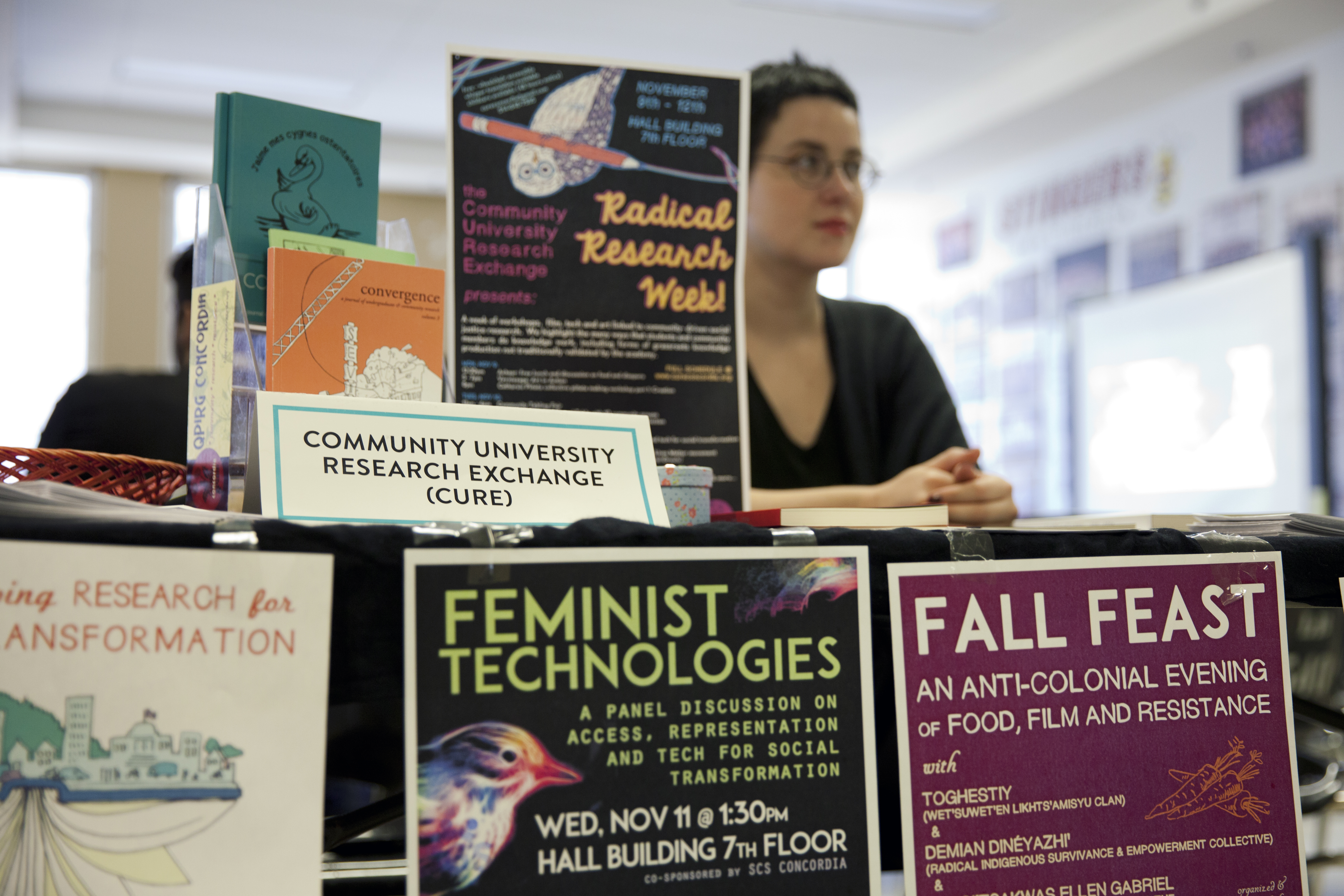Community-University Research Exchange is hosting Radical Research Week
A week-long event looking to highlight the importance of work done by community grassroots movements kicked off at Concordia Monday.

Radical Research Week is hosted by Community-University Research Exchange (CURE), part of Quebec Public Interest Research Group (QPIRG) at Concordia, a group which works to connect students to community-driven social justice research through grassroots organizations in Montreal.
“It grew out of this undergraduate community-driven research conference that QPIRG puts on every year called Study in Action,” said CURE coordinator Cassie Smith.
CURE works to pair students with research projects organized by community grassroots organizations.
The first-ever Radical Research Week consists of workshops, panels, art exhibits and film screenings to show how students and community members contribute to knowledge production—even if it isn’t recognized by academic institutions.
On Monday, Radical Research week kicked off with a free lunch with the People’s Potato. Later that day was an exhibit showing art related to social and environmental justice and a collective piñata making workshop where participants create a piñata based on something that bothers them as a group. That piñata will be destroyed later during the week as a cathartic group experience.
Other events include a community roundtable with representatives from 10 different community groups, a panel discussion on technology on feminist technologies and a Radical Campus Tour to learn more about radical activism projects around Concordia, both past and present.
On Thursday, the keynote panel discussion about grassroots knowledge, hosted on the seventh floor of the Hall building, will feature Indigenous activist and artist Ellen Gabriel, Black feminist Robyn Maynard and co-founder of Montreal-based FemHack Anne Goldenberg.
“[The keynote] really draws in the idea of community-based social justice research from a variety of perspectives,” said Smith.
CURE will be requesting to become its own fee-levy group at the Concordia Student Union byelections later this month. Smith said allowing the group to become independent from QPIRG would allow CURE to hire coordinators and increase the number of events they hold.
“We don’t have the budget to have a stable coordinator, they’re always hired through … some sort of short term grant,” said Smith. “Some semesters we don’t even have a coordinator.”
Smith also said the fee levy would allow CURE to triple or quadruple the number of students working with grassroots groups each year. Currently, around six students take part in a CURE project each year.
“As an undergraduate student, I think it’s really easy to be on auto pilot or feel like what you do is just for some degree requirement but doesn’t really go beyond that,” Smith said. “I think [CURE projects] are really important for students because it validates that work you do as useful.”
“You don’t have to have a PhD to do amazing research,” she added. “Instead of writing papers that get read by your professors then shoved into a drawer someplace, you can do work that actually goes outside the walls of the university and benefits whole communities.”
To learn more about CURE and Radical Research Week, visit curemontreal.org.



